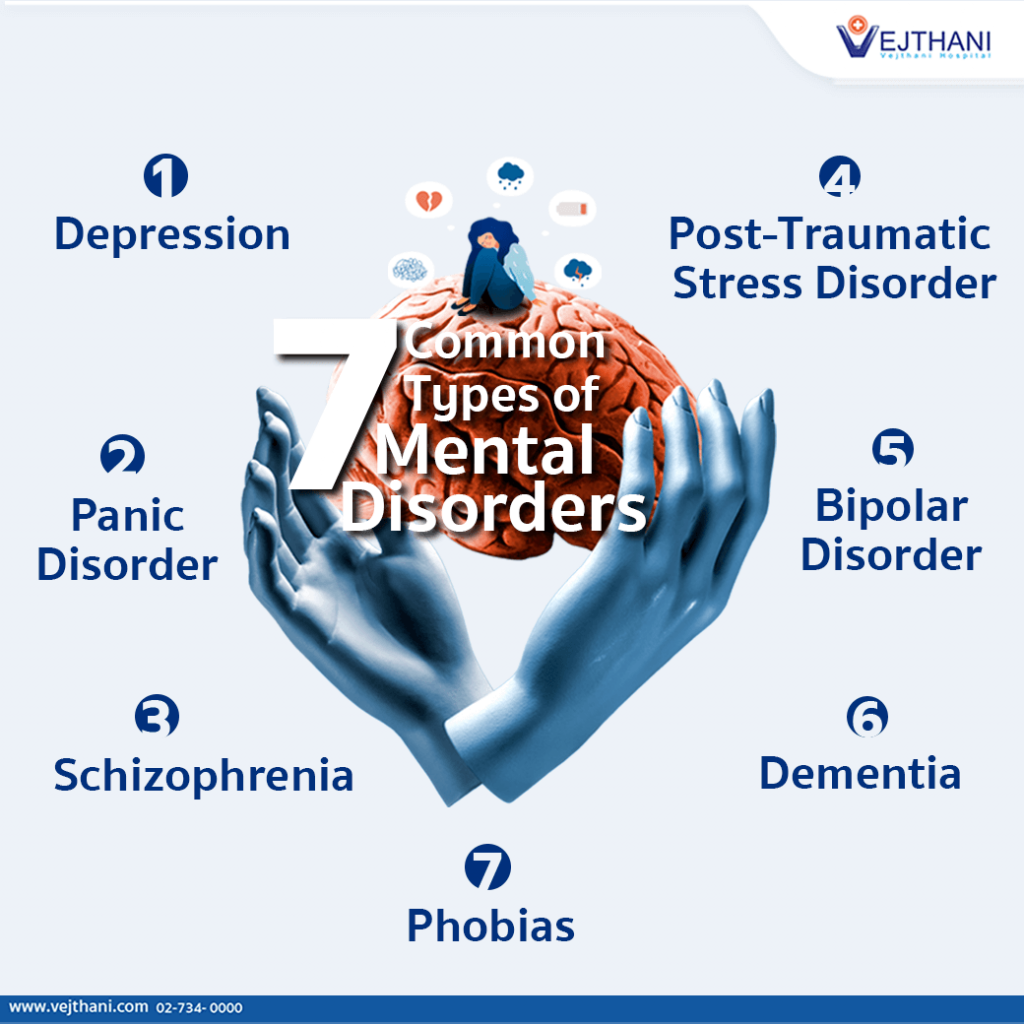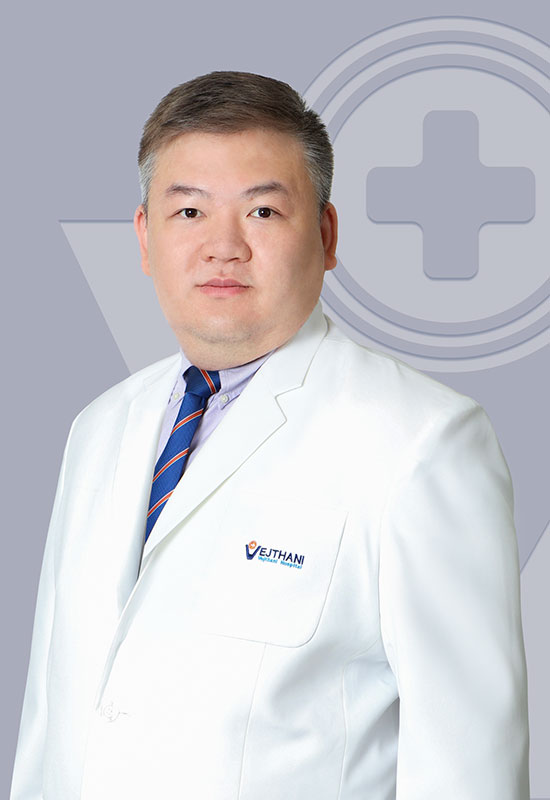

Mental disorder or mental illness refers to a wide range of mental health conditions that affect the mood, thinking, and behavior. It causes impairment of personal function and significant distress. Somehow, there are a lot of people who don’t realize that they have mental disorders or some people may know that they have it but aren’t willing to consult with a specialist, causing more severe symptoms of mental disorders which might lead to life-threatening complications. Hence, observing the symptoms of your loved ones and yourself is important. If there are any abnormalities detected, consult with a psychiatrist for a prompt diagnosis and treatment for mental disorder before it gets severe.
7 common types of mental disorders include:
- Depression
The symptoms of depression may include feeling down or sad, feeling of worthlessness, reduced ability to concentrate, forgetfulness, sleeping problems, loss of appetite, headache, and thoughts of death or suicide. If the symptoms last for more than 2 weeks, psychiatric consultation is recommended.
- Panic Disorder
Panic disorder is an anxiety disorder characterized by recurring unexpected panic attacks; causing shortness of breath, a racing heartbeat, dizziness, feeling faint, or a fear of dying. The symptoms often last about 10 – 20 minutes, but in some cases, the symptoms may continue and seem to be increasing in severity. This causes a constant feeling of anxiety or panic disorder, losing control, behavior change, and fear of being alone. Seek medical attention immediately.
- Schizophrenia
The patients with schizophrenia will have the symptoms of hallucinations, delusions, changes in facial expression, lack of interest in spending time with other people, and anxiety. If the symptoms last for more than 6 months and are left untreated, it will be difficult to treat, and as a result, the treatment outcome will be poor. It’s because schizophrenia is a chronic disease. If left untreated, the symptoms can become more severe and difficult to cure.
- Post-Traumatic Stress Disorder
Post-Traumatic Stress Disorder is a disorder that develops in some people who have experienced a shocking, scary, or dangerous event; causing a feeling of fear or mistrust, and easily gets startled. If left untreated, it might affect daily activities.
- Bipolar Disorder
Bipolar disorder is a condition that causes extreme mood swings between mania and depression. When the patients become depressed, they may feel sad and hopeless just like the symptoms of the patients with depression. The depression period may last for months and then shifts to mania. During the mania period, the patients may feel euphoric, full of energy, under-sleeping, kind, and friendly. However, they may have a problem with self-control. For example, if they want to do something, they will do it right away, and if someone is offended, they will easily become very angry.
- Dementia
Dementia is a condition in which there is deterioration in cognitive function, affecting daily activities. Patients with dementia may have problems with short-term memory and changes in thinking skills. Dementia is commonly found in elderly aged over 65 years old. Depending on the cause, some dementia symptoms might be reversible. Dementia that is caused by hydrocephalus, tumor, intracerebral hemorrhage, thyroid disease, vitamin B12 deficiency, syphilis infection, autoimmune disease, or medication side effects can be reversed with treatment. In addition, depressed patients whose symptoms are associated with pseudo dementia can also be treated if the symptoms of depression are gone. However, there are some types of dementia that cannot be reversed, such as Alzheimer’s disease, Vascular dementia, Lewy body dementia, etc.
- Phobias
Phobias are persistent and intense fear of a certain thing or situation. For example, fear of heights, fear of darkness, fear of an animal, fear of blood, etc. Patients with phobia will actively and immediately avoid the phobic thing or situation. In severe cases, even mentioning their phobia or facing the same situation, they cannot endure it. However, phobias can be treated with a combination of therapy and medications.
If you are interested in finding treatment for your mental health or your loved ones, please do not hesitate to contact Vejthani Hospital. Call +66(0)85-223-8888 (English Hotline).
For more information, contact
Internal Medicine Center, Vejthani Hospital
Call 02-7340000 or Ext. 2200
English Hotline: (+66)8-522 3888
- Readers Rating
- Rated 4.8 stars
4.8 / 5 ( Reviewers) - Spectacular
- Your Rating























